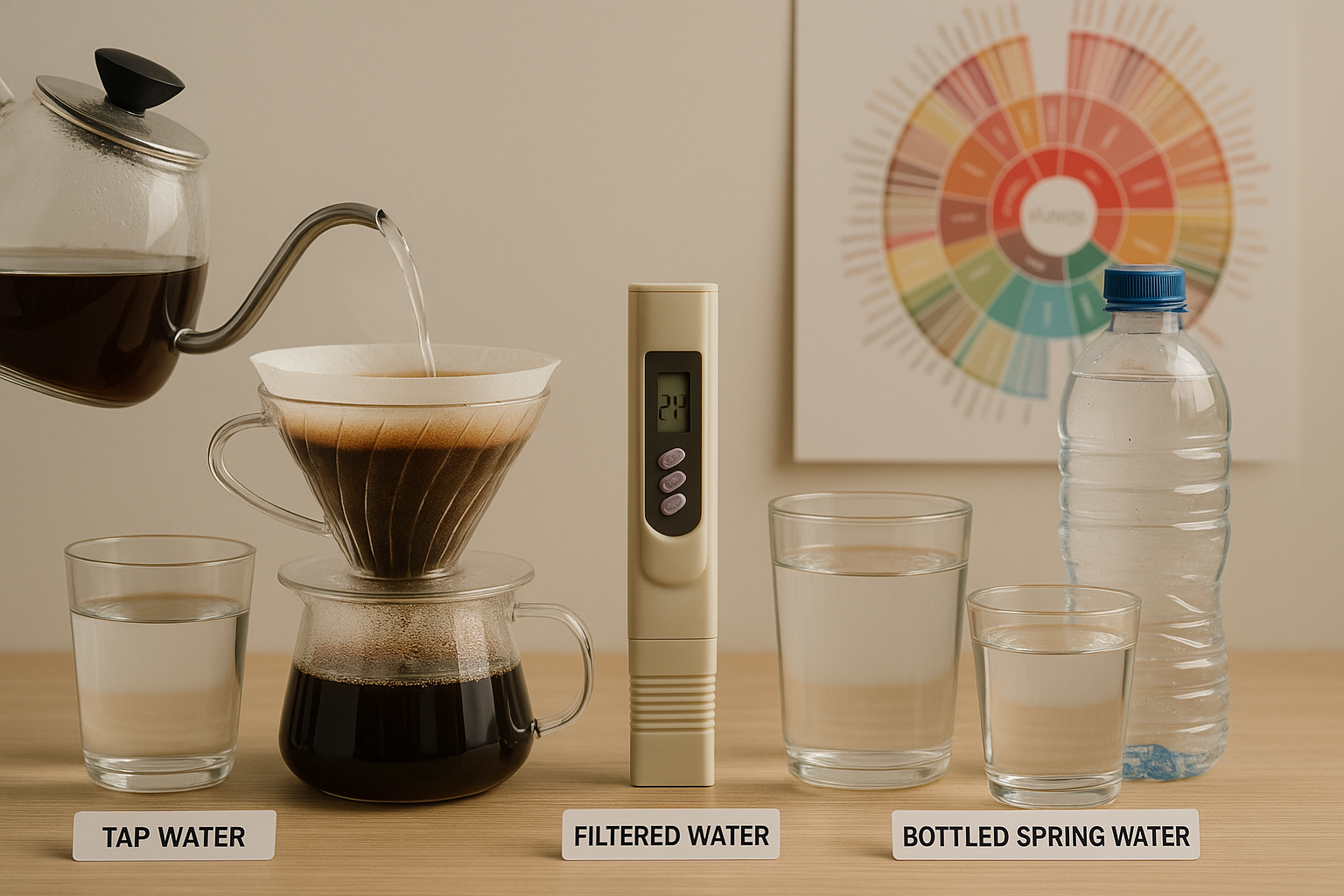You may have the finest beans, the perfect grind, and a great brewing method—but if your water isn’t right, your coffee won’t be either. Water makes up over 98% of a cup of coffee, and its quality directly affects taste, clarity, and aroma.
In this article, we’ll explore why water matters so much, what kind of water to use, and how to improve your brews by improving your water.
Why Water Quality Matters in Coffee
Coffee is essentially an infusion—flavor compounds from coffee grounds are extracted into water. The water’s chemical makeup, temperature, and freshness all affect this extraction.
Poor-quality water can:
- Extract unpleasant bitterness
- Mask or dull flavor nuances
- Add off-tastes (chlorine, metallic, or sulfur)
- Affect brew consistency
Key Factors in Water for Coffee Brewing
1. Hardness and Minerals
- Minerals like calcium and magnesium are essential for proper extraction.
- Too much = over-extraction and bitterness.
- Too little = flat or sour coffee.
Ideal hardness: 50–175 ppm (parts per million)
2. Alkalinity
- Alkalinity stabilizes pH, but too much can mute coffee flavor.
Ideal range: 40–70 ppm
3. pH Level
- Coffee prefers a slightly acidic to neutral pH.
Ideal pH: 6.5 to 7.5
4. Chlorine and Contaminants
- Chlorine ruins flavor and can cause chemical tastes.
Avoid tap water with chlorine—use filtered or bottled water instead.
Types of Water and How They Affect Coffee
| Water Type | Pros | Cons |
|---|---|---|
| Tap Water | Convenient | May contain chlorine or minerals that alter flavor |
| Filtered Water | Balanced, removes chlorine | Quality depends on filter type |
| Bottled Spring Water | Mineral-rich, consistent | Can be expensive over time |
| Distilled Water | Very clean, no minerals | Lacks essential minerals—flat flavor |
| Reverse Osmosis | Very pure, customizable (with add-ins) | May need remineralization |
How to Improve Water for Coffee
1. Use a Water Filter
- A charcoal filter (e.g., Brita) removes chlorine and some impurities.
- Consider inline filters if you use a home coffee maker.
2. Test Your Water
- Use a TDS meter (total dissolved solids) to check mineral levels.
- Aim for a TDS reading around 100–150 ppm.
3. Use Specialty Brewing Water
- Brands like Third Wave Water offer mineral packs to add to distilled water.
- Ensures ideal balance for flavor and extraction.
Water Temperature Also Matters
The perfect brew isn’t just about water quality—it’s also about temperature.
Ideal range: 90°C to 96°C (195°F to 205°F)
- Below 90°C = under-extracted, sour coffee
- Above 96°C = over-extracted, bitter coffee
Tip: Let boiling water sit for 30 seconds before brewing if you don’t have a thermometer.
What Baristas and Pros Use
Specialty cafés often use:
- Filtered, mineral-balanced water systems
- Remineralized reverse osmosis (RO) setups
- Digital testing to ensure TDS and pH control
That’s how they get such consistent flavor—and why your home brew may taste different even with the same beans.
Real-World Tip: Taste Test
Brew the same coffee using:
- Tap water
- Filtered water
- Bottled water (like spring or distilled + minerals)
You’ll notice:
- More clarity and brightness with good water
- Muted or off flavors with poor-quality water
Final Sip: Good Beans Deserve Good Water
Water isn’t just a brewing tool—it’s the foundation of your coffee’s flavor. With the right balance of minerals, cleanliness, and temperature, water helps unlock your beans’ full potential.
✅ Use filtered or spring water
✅ Avoid chlorine and extremes in hardness
✅ Mind the temperature
✅ Consider testing or custom brewing water
Great coffee starts with great water.
